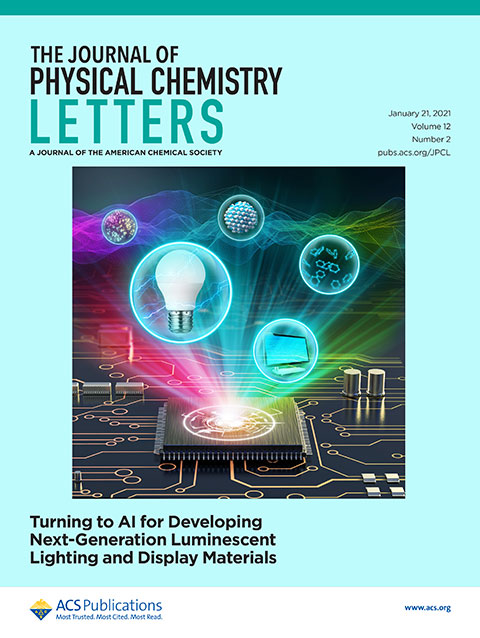Recognition & Honors

Jakoah Brgoch (Chemistry) and graduate student Ya Zhuo co-authored a perspective piece, Opportunities for Next-Generation Luminescent Materials through Artificial Intelligence, that was highlighted on the January 21 cover of the Journal of Physical Chemistry Letters. In the perspective, they discuss opportunities for using AI and machine learning to transform the materials used in lighting and display applications.
Albert Cheng (Computer Science) will serve as the general chair of the 2021 IEEE RTCSA (International Conference on Embedded and Real-Time Computing Systems and Applications). IEEE RTCSA is among the top four conferences in real-time systems and is the top conference held in Asia in this field.
Lorenzo Colli, Jonny Wu, and graduate student Spencer Fuston (Earth & Atmospheric Sciences) have been awarded 2.5 million Central Processing Unit hours by the National Science Foundation for use of its high-end computing system at the Texas Advanced Computing Center. They will be investigating an unexplained, lost ocean present below the western United States. The monetary value of these awarded resources is more than $2 million.
Mini Das (Physics) has been named a Scialog Fellow for the Research Corporation for Science Advancement’s new initiative: Advancing Bioimaging. Fifty-five early career researchers were selected for this honor. A series of three yearly meetings will bring together a diverse group of scientists to address the challenges involved in enhancing high-resolution imaging of tissues to support basic science and the treatment of disease. Participants will include optical physicists, chemists, engineers, and biologists.
Pavan Hosur (Physics) has received an NSF CAREER Award with funding of $575,000 for his proposal, “Weak and Strong Correlations in Topological Semimetals.” The award supports theoretical and computational research, as well as education, on a new and fascinating class of materials, topological semimetals, and the way electrons organize themselves in these materials.
Zhifeng Ren (Physics, TcSUH) led a team of researchers who have reported an oxygen evolving catalyst that takes just minutes to grow at room temperature and is capable of efficiently producing both clean drinking water and hydrogen from seawater. Paired with a previously reported hydrogen evolution reaction catalyst, it can achieve industrially required current density for overall seawater splitting at low voltage. The findings were published in Energy & Environmental Science. Ren, corresponding author for the paper, said speedy, low-cost production is critical to commercialization.
Bin Yang (Lab Supervisor 2, Chemistry) earned the Institute of Hazardous Materials Management’s Certified Hazardous Materials Manager (CHMM) credential.
Ding-Shyue (Jerry) Yang (Chemistry) and postdoctoral researcher Xing He found a fundamental behavioral difference in the energy transport of solid-supported methanol thin film. Their findings, published in the American Chemical Society’s Nano Letters, could have implications in the behavior of both inorganic 2D materials and organic materials, such as solar panels and human cells.
